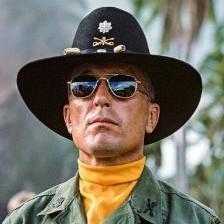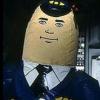Leaderboard
Popular Content
Showing content with the highest reputation on 08/31/2015 in all areas
-
1 point
-
Methinks getting rid of "up or out" would be easier if someone bothered to tell decision makers why it was originally instituted. It's not Friday, but here's the history lesson: - WW II created a huge number of officers from a very small number of year groups (basically six: mid-1939 to mid-1945), much like WW I did before it - The situation was especially bad in the Air Force, because the interwar Army had so screwed over the Air Service/Air Corps for manning before '39. The AAF had to grow way faster than the ground Army did during the war, which led to even bigger year-group imbalances within the air arm -- At its wartime peak of 2.4M in March 1944, all but maybe 1% of the AAF had less than 5 years of mil service. This created a huge "pig in a python" personnel-wise, since it would be decades before those folks were forced to retire due to age restrictions. -- The net result was that the Air Force would essentially have been filled by same five or six year groups' worth of folks, which would have left no room for new blood--with the fresh ideas and energy that young officers bring to the fight - Up or out policies sought to address this concern by forcing attrition at the senior ranks and those with higher time in service, in order to make more room for younger year groups that were the future of the Air Force In short, the Up or Out system was built because too many people wanted to stay in, which led to imbalance within the service. What we have now is the exact opposite problem--too few want to stay in, especially those in high-demand career fields. The overall problem is no longer getting rid of dead weight and making room for new talent as it is retaining quality so there can be some level of experience and stability. The problem set today is 180 degrees out from the circumstances that drove up-or-out. The solutions should be significantly different, as well. The problem is that fixing military personnel policies won't fix our civilian leaders' cluelessness wrt appropriate use of military force, inability to comprehend military culture, or incapacity to get along and overcome budget impasses in congress. Civilian-driven missteps are a major factor in discouraging quality individuals from remaining on active duty. I am an optimist at heart, and I take this discussion as a positive sign that our senior civ & mil leaders are least acknowledging there is a problem. I have little hope that we will fix our hemorrhaging of talent, though, until we quit with the social engineering efforts and attacks on military culture which discourage voluntary service. TT1 point
-
While I gather they have since been removed, when I was flying the MC-12 out of Balad, they still had the standard King Air "relief tubes" installed (one at pilot station, the other by the "lav" (a porta-potty in the aft end of the cabin). I had a female crypto operator who was thrilled to get a Shewee & use the relief tube: "I peed on Iraq!!" was her battle cry for the rest of the deployment....1 point
-
I know a few commanders who were "total bros" when they were captains and majors, then went full crazy when given command. And I know more than a few captains who are great dudes, but I worry about what they will be like as commanders. Leadership is hard, if it weren't for the fact I have virtually zero chance of command, I'd be worried about myself being in power as well. Unfortunately the pilot world doesn't rate and promote based on leadership abilities and experience. Since there are too many officers and not enough leadership positions, we use program management and education as discriminators. But what most of us want, a return to a flying focus, doesn't enhance leadership ability either. I think there is a huge credibility boost a squadron commander gains from being proficient in the jet, but at the group and above level I don't think flying ability helps any more than being an exec or getting DG at SOS. I don't know the right answer, but there is a reason civilian corporations hire CEOs and presidents from outside the company. Ford doesn't need the best design engineer or riveter at the helm. Leadership is a skill unto itself, and it cannot be nurtured or measured through other actions and skills.1 point
-
I can't explain why it makes sense but I can shed a little light on the process of why the AF selects people so early in their career for grooming to O-7. The entire AF officer promotion system is based on a Pole Year to general officer at 24 years. In order for an individual to be realistically competitive for O-7 at 24 years, he or she needs to be a BTZ guy at least once, if not more. If someone isn't BTZ, their chances of O-7 are practically non-existent (I'm sure its theoretically possible but extremely unlikely). The system is biased in such a way to select officers fairly early (in today's environment IDE select off your O-4 board is a big one due to how difficult it is to get a school slot as a candidate) and build on their forward momentum, especially once someone makes BTZ once. A lot of good SQ/CCs and SRs may realize that many (if not most) officers have little or no interest in O-7 but the promotion system currently in place is fairly rigid in what it rewards and recognizes as promotionable/BTZ material (I've seen 2-3 guys that were marginal or poor SQ/CCs that continued to advance within the current system because of already being BTZ/fast track guys). While I don't know Rat personally (thankfully) if he was the SECAF speech writer then there was a good chance he was working for a general officer who had DPs to give and a very small pool of officers to dole them out to; jobs like that are very promotable even though they pretty much are devoid of actual leadership experience. Guys like him are also usually hyper aware of their Pole Year and what they need to progress, generally at the expense of their colleagues and anyone unfortunate enough to be stuck under their command. Cleared Hot or Liquid may be able to explain this more clearly or correct anything I typed above that's incorrect, a lot of guys don't know much about this stuff cause the AF as a whole doesn't explain the promotion system very well or at all to new officers. Hope this helps.1 point
-
And ironically, "picking Generals" at O-3 is one of the leading reasons why many of the "chosen" dudes get out after their last ADSC. There's a lot of "high caliber officers" who would probably stay in longer if they weren't forced onto the COCOM track at O-3.1 point
-
This isn't a future problem; it has already happened. Where do you think guys like Rat, Yogi and that idiot at the pentagon who got housed by a chick came from? The combination of picking generals at the Capt ranks along with our leadership/culture problems and poor incentives to stay have left us in a position to bleed talent for many years. Few good dudes stay and several people thrive in this culture when they would be total failures if (A) they were in the private sector or (B) someone had the balls to take them off the path they got put on when they got their SOS DG and kissed ther commander's ass for their first strat. We don't promote the best, we promote the ones among those that are left who best fill their containers An old an old squadron mate was pushed hard by leadership as a Capt/Maj - eventually goes to (I think) Shaw to be a SQ/CC. The other CCs there learn that this new dude picked up the #1 CC strat before he's even set foot on base. I mean, you've gotta keep the golden boy on the golden path even if objectivity goes out the window. My point: the bonus is small potatoes compared to the cultural and leadership problems. Can it help if executed well? Sure, but there are bigger problems that make the bonus almost irrelevant WRT retaining talent.1 point
-
I don't think USAFA needs to motivate cadets to choose a pilot AFSC. As a matter of fact there are more that choose rated than get slots. I also think IFT is still doing most of what it was designed for. Those that go there and discover: A. they don't actually enjoy flying B. don't have the aptitude for it C. Can't handle the training will leave (or be forced to leave) before UPT. I don't believe that the little extra "hand holding" during IFT is going to have an overall detrimental effect on the UPT grad rates.1 point
-
1 point
-
For the guys who stayed at Las Ventanas, did you just refuse quarters on base and have something set up with them? Also what did you do for furniture? A couple of the places I have found who sublease out from them are charging an arm and leg for it. As to where the 75% periderm wouldn't even cover it. Thanks1 point
-
You know what's wrong with this is the fact that budderbar has to wonder what his commander is trying to say. I won't speak for communities I don't know, but at least within the fighter community, we are so good at providing unfiltered feedback in the tactical debrief, but so absolutely abhorrent at providing feedback on OPRs, job performance, bar-act, officership, etc. Budderbar should have had his commander sit him down and say, "Hey, just so you're not confused, here is what I'm trying to say on this OPR, and here is why, and here is how I am hoping a promotion board will interpret this. If you wouldn't have done this and would start doing this, here's how it should look next year." Feedback like this doesn't happen from a big AF program telling us to, it starts at a grassroots level like this. Cheers, Budderbar.1 point







